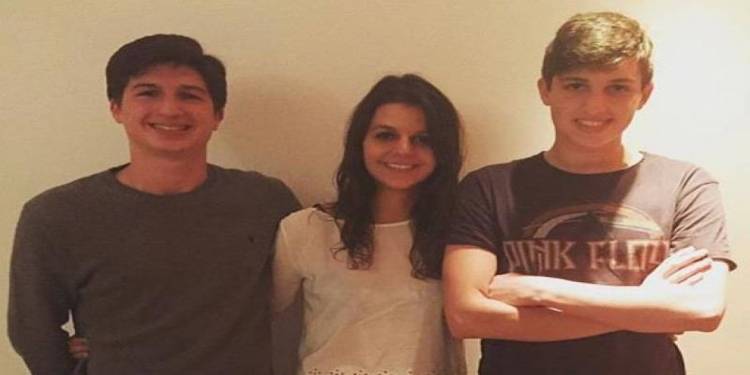
The Islamabad High Court (IHC) has decided to constitute a larger bench to preside over a plea seeking Pakistan Tehreek-e-Insaaf chief Imran Khan's disqualification for concealing his alleged daughter Tyrian White.
The petitioner, Muhammad Sajid, had maintained that the former premier had disclosed his two sons and not his alleged daughter Tyrian White in the nomination papers. He sought the disqualification of the PTI chief under Article 62(1)(f).
During the hearing, IHC Chief Justice Aamer Farooq observed that Imran's primary argument was that he was no longer a public office holder. The court also noted that the petitioner had challenged Imran's 2018 oath.
The chief justice explained that he had recused himself from hearing a similar petition in 2018 but not on personal grounds.
On 9 December, IHC Chief Justice Aamer Farooq issued a pre-admission notice to PTI chief Imran Khan and the Election Commission of Pakistan (ECP) on the petition of citizen Sajid Mehmood, asking their legal representatives to help the court decide if the petition is maintainable or not.
The petitioner seeks the disqualification of PTI chairman Imran Khan as MNA from the NA-95 Mianwali-I constituency, contending that all candidates contesting elections for any legislative office are required to furnish an affidavit in respect of their credentials and assets. He said Imran had wrongly mentioned two children — “Qasim Khan and Sulaiman Khan” — and had omitted the third.
The petition continued: “Article 62 of the Constitution, as interpreted by various judgments of the superior courts, prescribes that a candidate shall only qualify to be elected as a member of the National Assembly if he is of good character and is not commonly known as one who violates Islamic Injunctions; and he has adequate knowledge of Islamic teachings and practices; obligatory duties prescribed by Islam as well as abstaining from major sins.”
The petitioner urged the court to summon the former prime minister and inquire about the reasons for the violation of Article 62 of the Constitution, which says, “a person shall not be qualified to be elected or chosen as a member of Majlis-e-Shoora (Parliament) unless — he is sagacious, righteous, non-profligate, honest and ameen, there being no declaration to the contrary by a court of law”.
The petitioner, Muhammad Sajid, had maintained that the former premier had disclosed his two sons and not his alleged daughter Tyrian White in the nomination papers. He sought the disqualification of the PTI chief under Article 62(1)(f).
During the hearing, IHC Chief Justice Aamer Farooq observed that Imran's primary argument was that he was no longer a public office holder. The court also noted that the petitioner had challenged Imran's 2018 oath.
The chief justice explained that he had recused himself from hearing a similar petition in 2018 but not on personal grounds.
Read also: IHC Plea Seeks Disqualification Of Imran Khan for “Concealing” Child
On 9 December, IHC Chief Justice Aamer Farooq issued a pre-admission notice to PTI chief Imran Khan and the Election Commission of Pakistan (ECP) on the petition of citizen Sajid Mehmood, asking their legal representatives to help the court decide if the petition is maintainable or not.
The petitioner seeks the disqualification of PTI chairman Imran Khan as MNA from the NA-95 Mianwali-I constituency, contending that all candidates contesting elections for any legislative office are required to furnish an affidavit in respect of their credentials and assets. He said Imran had wrongly mentioned two children — “Qasim Khan and Sulaiman Khan” — and had omitted the third.
“The respondent no. 1 [Imran Khan] has deliberately and willfully failed to declare his daughter Tyrian White in the relevant columns of the nomination papers and the affidavit appended therewith, hence he is not sagacious, righteous, honest and a man of good character in terms of Article 62 of the Constitution,” according to the petition.
The petition continued: “Article 62 of the Constitution, as interpreted by various judgments of the superior courts, prescribes that a candidate shall only qualify to be elected as a member of the National Assembly if he is of good character and is not commonly known as one who violates Islamic Injunctions; and he has adequate knowledge of Islamic teachings and practices; obligatory duties prescribed by Islam as well as abstaining from major sins.”
The petitioner urged the court to summon the former prime minister and inquire about the reasons for the violation of Article 62 of the Constitution, which says, “a person shall not be qualified to be elected or chosen as a member of Majlis-e-Shoora (Parliament) unless — he is sagacious, righteous, non-profligate, honest and ameen, there being no declaration to the contrary by a court of law”.

